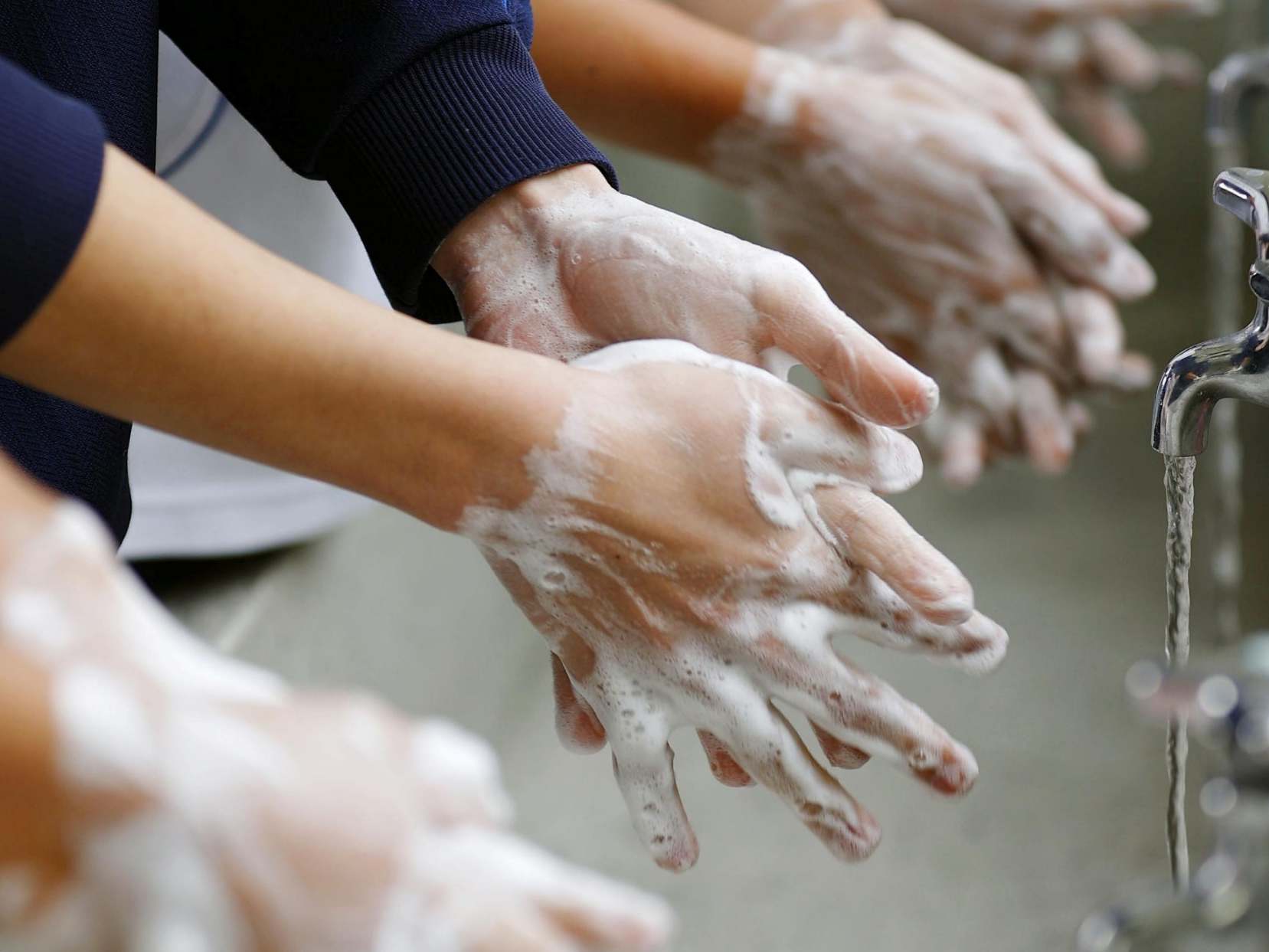Wash hands six times a day to stay safe from coronavirus, says study
‘Good hand hygiene should be practised at all times regardless of whether you show symptoms or not,’ say researchers

Your support helps us to tell the story
From reproductive rights to climate change to Big Tech, The Independent is on the ground when the story is developing. Whether it's investigating the financials of Elon Musk's pro-Trump PAC or producing our latest documentary, 'The A Word', which shines a light on the American women fighting for reproductive rights, we know how important it is to parse out the facts from the messaging.
At such a critical moment in US history, we need reporters on the ground. Your donation allows us to keep sending journalists to speak to both sides of the story.
The Independent is trusted by Americans across the entire political spectrum. And unlike many other quality news outlets, we choose not to lock Americans out of our reporting and analysis with paywalls. We believe quality journalism should be available to everyone, paid for by those who can afford it.
Your support makes all the difference.Researchers suggest washing your hands between six to 10 times a day will help avoid catching coronavirus and other similar infections.
A study found that moderate-frequency handwashing was associated with a 36 per cent reduction in the risk of becoming infected with coronavirus compared to those who wash their hands fewer than five times a day.
However, washing hands more than 10 times a day did not produce any significant differences, said researchers.
Sarah Beale, from University College London and first author of the study, said: “Given that Covid-19 appears to demonstrate similar transmission mechanisms to seasonal coronaviruses, these findings support clear public health messaging around the protective effects of handwashing during the pandemic.
“It’s important to highlight that frequency of handwashing is only one aspect of hand hygiene.
“We also know that both longer duration of handwashing and the context of handwashing – for example, upon returning home or before eating – have been associated with lower overall risk of influenza or influenza-like illness.”
The study involved1,633 participants providing baseline estimates of hand hygiene behaviour before being tested for coronavirus-like infections. The novel coronavirus comes from the same family of viruses as that of the common cold.
The research, published in Wellcome Open Research and awaiting peer review, looked at data from the England-wide Flu Watch study on viruses similar to Covid-19 between 2006-09.
At the start of each winter season, participants were asked to estimate how many times they had washed their hands the previous day.
“Good hand hygiene should be practised at all times regardless of whether you show symptoms or not,” added Ms Beale.
“This will help protect yourself and prevent unwittingly spreading the virus to others around you.”
The findings fall in line with government guidance to wash one’s hands frequently, for at least as long as it takes to sing the “Happy Birthday” song twice.
The authors said: “This is the first empirical evidence that regular handwashing can reduce personal risk of acquiring seasonal coronavirus infection.
“These findings support clear public health messaging around the protective effects of handwashing in the content of the current Covid-19 pandemic.”
In recent days, the UK government has put out additional lockdown slogans to encourage people to “Keep our distance, wash our hands, think of others, play our part”.
Justice secretary Robert Buckland told Sky News on Wednesday the new messaging – which follows the much-criticised “Stay Alert” slogan – covers the different elements needed to lower the spread of coronavirus as lockdown begins to ease.
“Of course the different elements to staying alert, which include washing hands, keeping our distance, builds up to that general approach which is that we all must be very much aware, not only of each other but what we can do in order to minimise the inadvertent transmission of this terrible disease,” he said.
Join our commenting forum
Join thought-provoking conversations, follow other Independent readers and see their replies
Comments